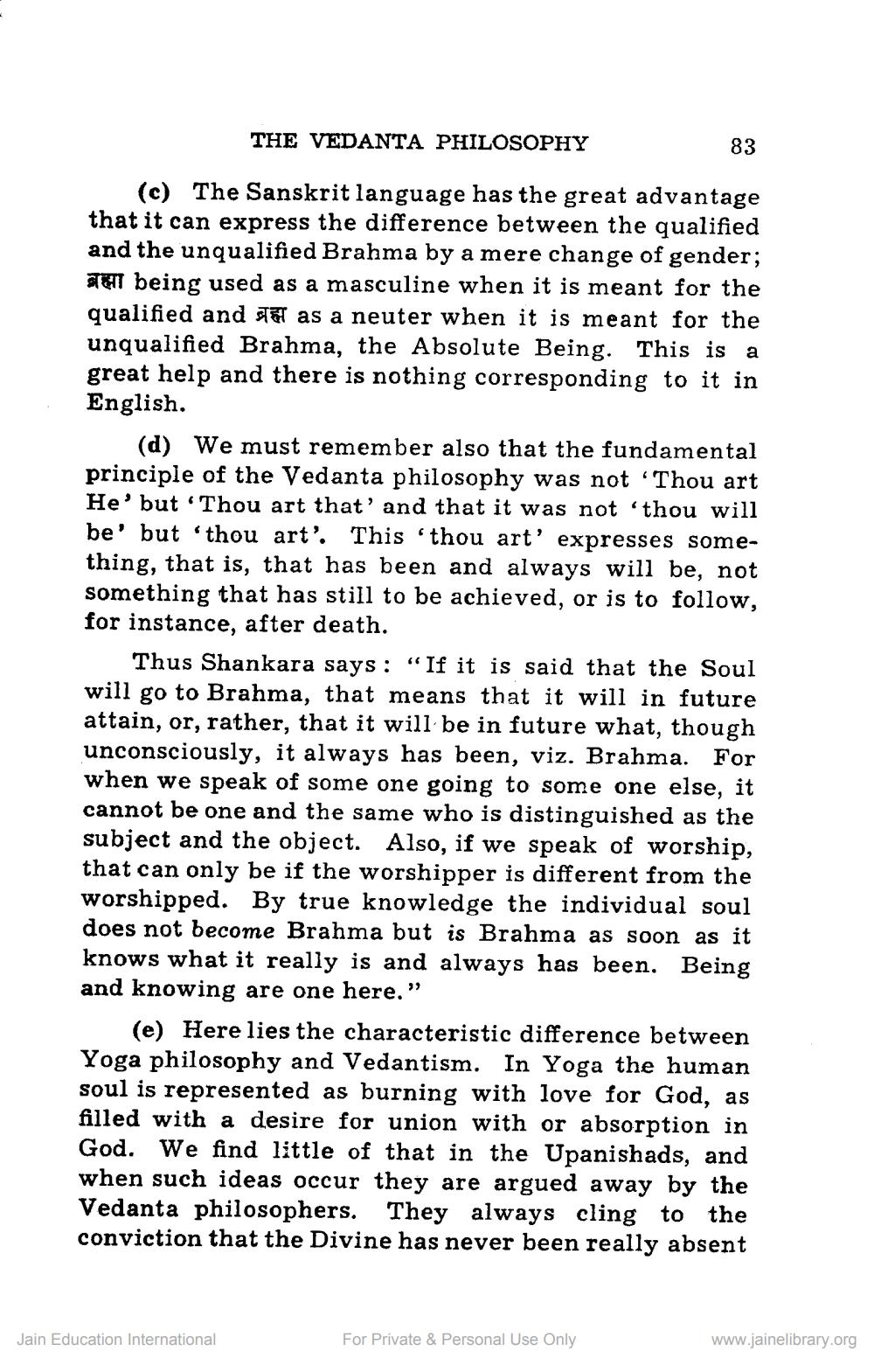________________
THE VEDANTA PHILOSOPHY
83
(c) The Sanskrit language has the great advantage that it can express the difference between the qualified and the unqualified Brahma by a mere change of gender; ETHT being used as a masculine when it is meant for the qualified and TH as a neuter when it is meant for the unqualified Brahma, the Absolute Being. This is a great help and there is nothing corresponding to it in English.
(d) We must remember also that the fundamental principle of the Vedanta philosophy was not 'Thou art He'but 'Thou art that' and that it was not thou will be' but thou art'. This thou art' expresses something, that is, that has been and always will be, not something that has still to be achieved, or is to follow, for instance, after death.
Thus Shankara says: “If it is said that the Soul will go to Brahma, that means that it will in future attain, or, rather, that it will be in future what, though unconsciously, it always has been, viz. Brahma. For when we speak of some one going to some one else, it cannot be one and the same who is distinguished as the subject and the object. Also, if we speak of worship, that can only be if the worshipper is different from the worshipped. By true knowledge the individual soul does not become Brahma but is Brahma as soon as it knows what it really is and always has been. Being and knowing are one here.”
(e) Here lies the characteristic difference between Yoga philosophy and Vedantism. In Yoga the human soul is represented as burning with love for God, as filled with a desire for union with or absorption in God. We find little of that in the Upanishads, and when such ideas occur they are argued away by the Vedanta philosophers. They always cling to the conviction that the Divine has never been really absent
For Private & Personal Use Only
Jain Education International
www.jainelibrary.org




